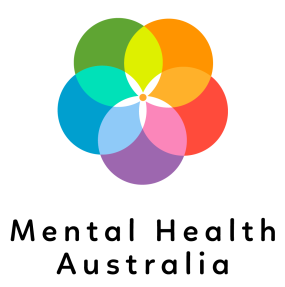Nurturing the Future and Prioritising Youth Mental Health
The transition from adolescence to adulthood is complex, with study stress, future stress, and body image rating high as areas of concern for young people.
This week Beyond Blue released a survey which found only one in three teachers believed students at their school were mentally healthy, showing there is an escalating crisis of mental-ill health among young Australians.
This statistic is confirmed in Reach Out’s recent ‘What are you worried about’ Report, which details an estimated 42 per cent of their survey respondents showed symptoms of serious mental illness.
According to the Australian Bureau of Statistics National Study of Mental Health and Wellbeing, approximately 40 per cent of 16–24-year-olds in Australia experienced mental health difficulties in 2020–21, the highest of any age group, which is a dramatic increase since the 2007 study.
Mental Health Australia’s 2023 Report to the Nation also shows different trends in the use of mental health supports, with 65 per cent of 9-13-year-olds speaking with friends or family for mental health support over the last 3 months. People 14-17 years old were equally likely to speak with friends or family (32 per cent) as a mental health professional (32 per cent), and people aged 18-39 were more likely than any other age group to look online for self-help information of support and use digital mental health services or apps (11 per cent).
These numbers show an urgent need for investment and coordination of mental health supports for young people, including digital mental health supports, in both this year’s Mid-Year Economic and Fiscal Outlook and subsequent budgets.
On 12 September I attended a Youth Mental Health Showcase, convened by the Parliamentary Friends of Youth Mental Health, co-chaired by Kylea Tink MP, Aaron Violi MP, Stephen Bates MP, and Senator Karen Grogan. At this event there were examples of promising practices occurring across the country, as well as discussions on the increasing rate of mental health challenges for the younger generation. These challenges serve as a wake-up call for our sector to act.
Many of our member organisations are already leading the way with youth-focused frontline services, research and support for new health specialists:
- baytr’s Peer-to-Peer Mental Health Programs show the peer-to-peer support model is imperative in creating resilient and supportive communities. Baytr has been delivering peer-to-peer mental health programs in schools, universities, and communities across Australia for over eleven years, reaching over 387,000 young people.
- Orygen Digital is driven by working alongside young people and their families to design and deliver technology-based mental health care that is engaging and effective, partnering closely with traditional clinical services to enhance existing service delivery by addressing the major limitations of current care.
- ReachOut’s PeerChat program enables young people to access support from trained peer workers they can trust, in a chat format they find reassuring and at a time of day that suits their lifestyle. It provides a safe online space for young people to connect through shared experiences, gain clarity on their situation and take positive action.
- headspace’s Early Career Program supports allied health students and graduates to deliver services whilst developing their skills for long-term careers in youth mental health.
We commend these organisations and many others tackling this challenge, however, there is a rising need for a stronger focus on early interventions and comprehensive digital mental health supports that are well coordinated so young people in Australia can access support before problems snowball.
Promisingly, our Report to the Nation showed an improvement in the rate of young people learning where to turn for mental health support.
Mental health education is an important part of addressing the current youth mental health crisis, and we welcome the recent development of resources to support teaching about mental health across the school curriculum.
Have a good weekend.
Carolyn Nikoloski
CEO, Mental Health Australia
| 







